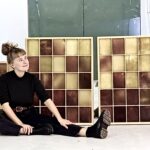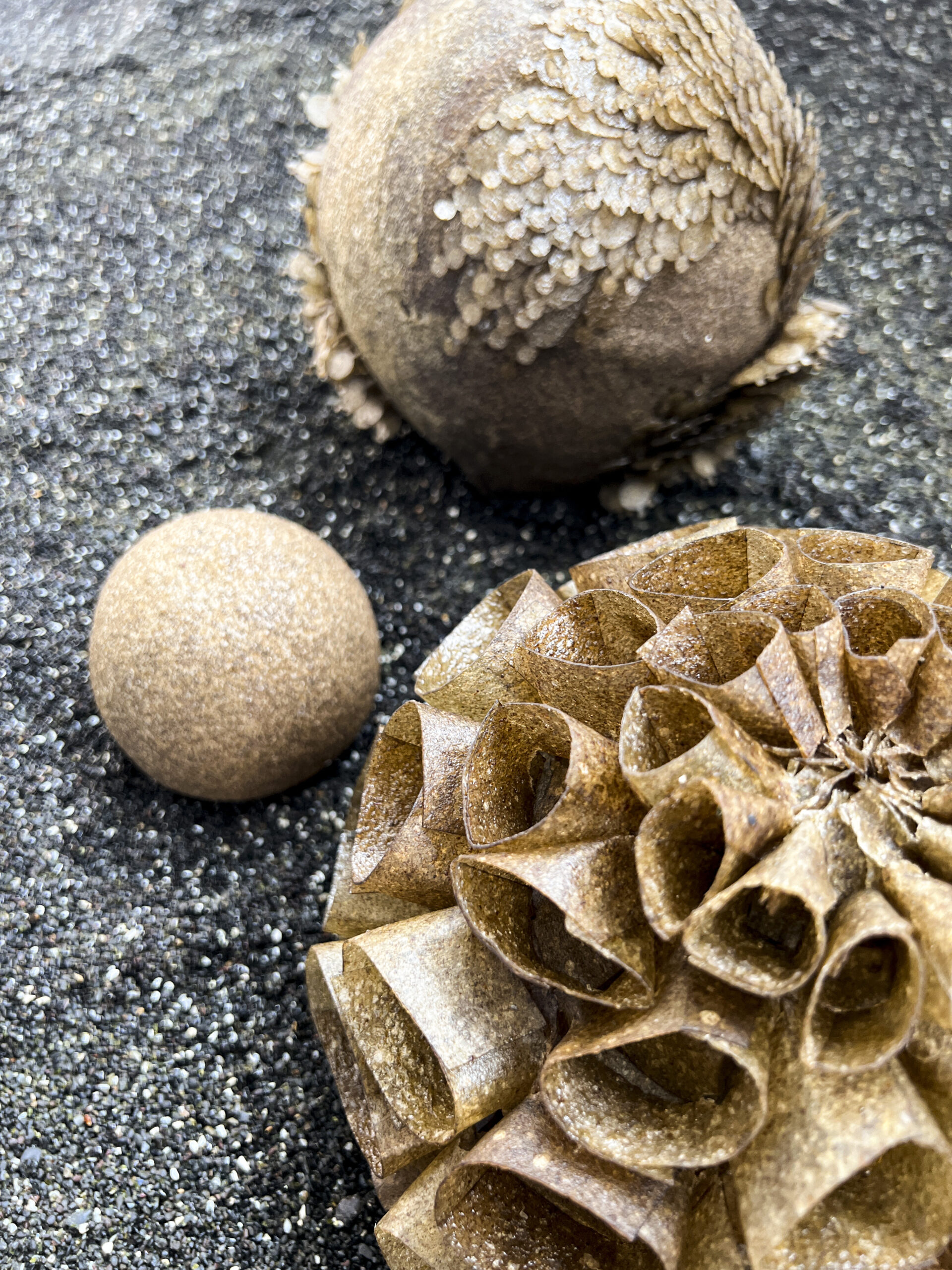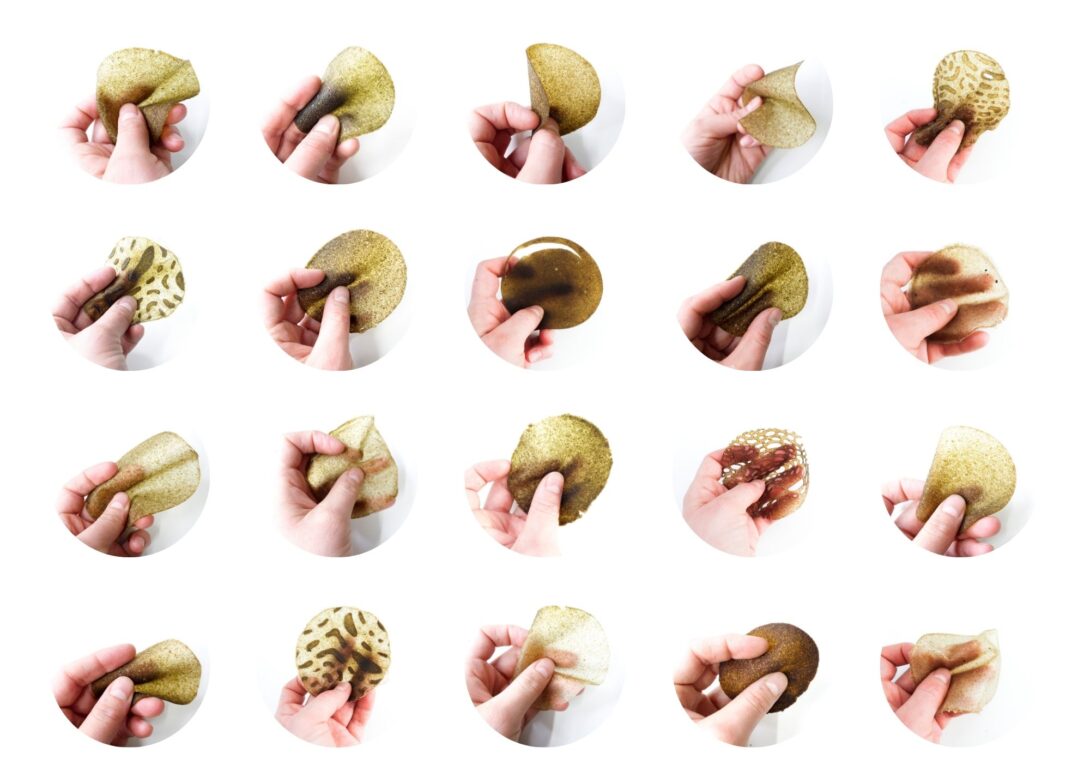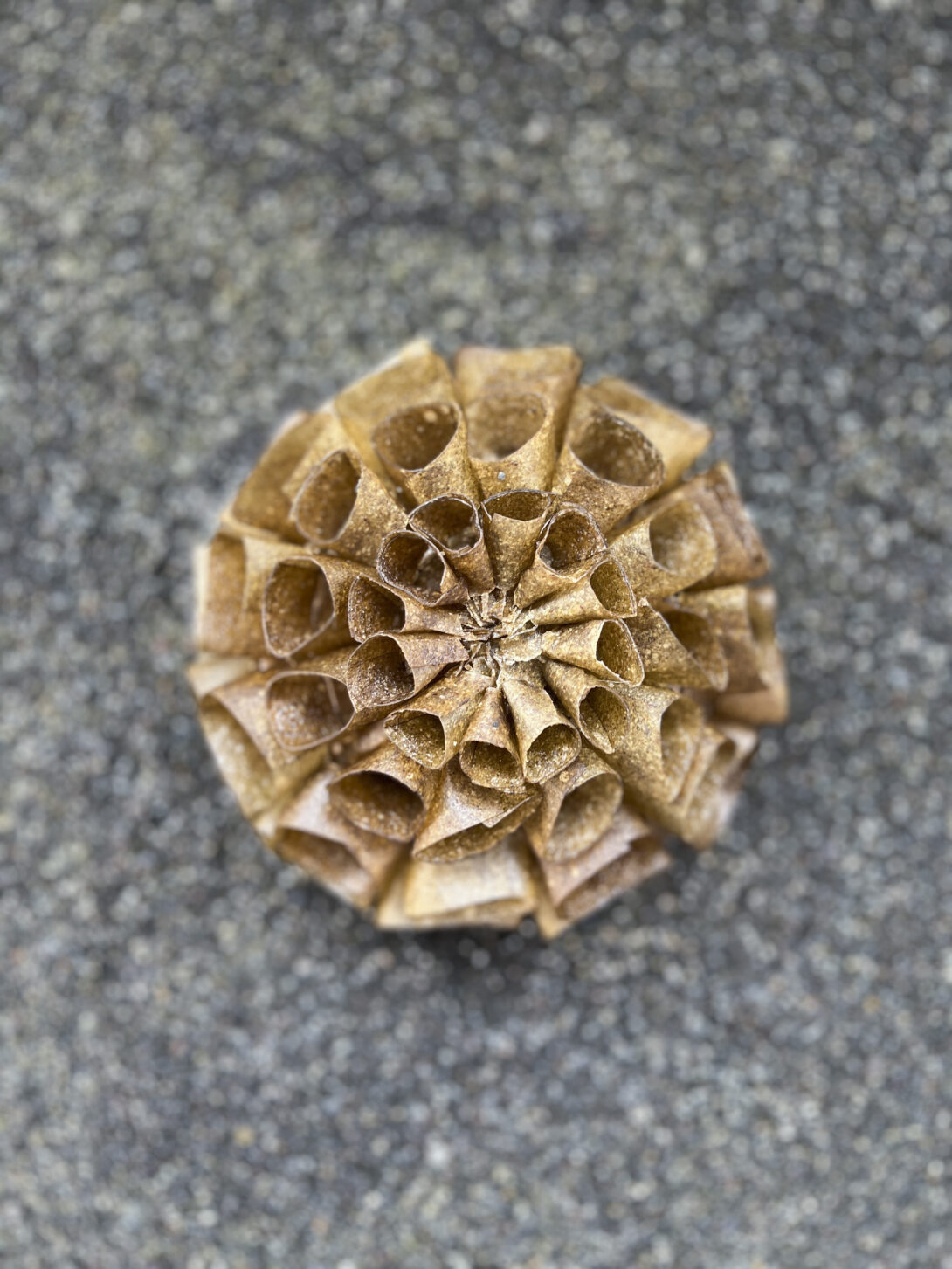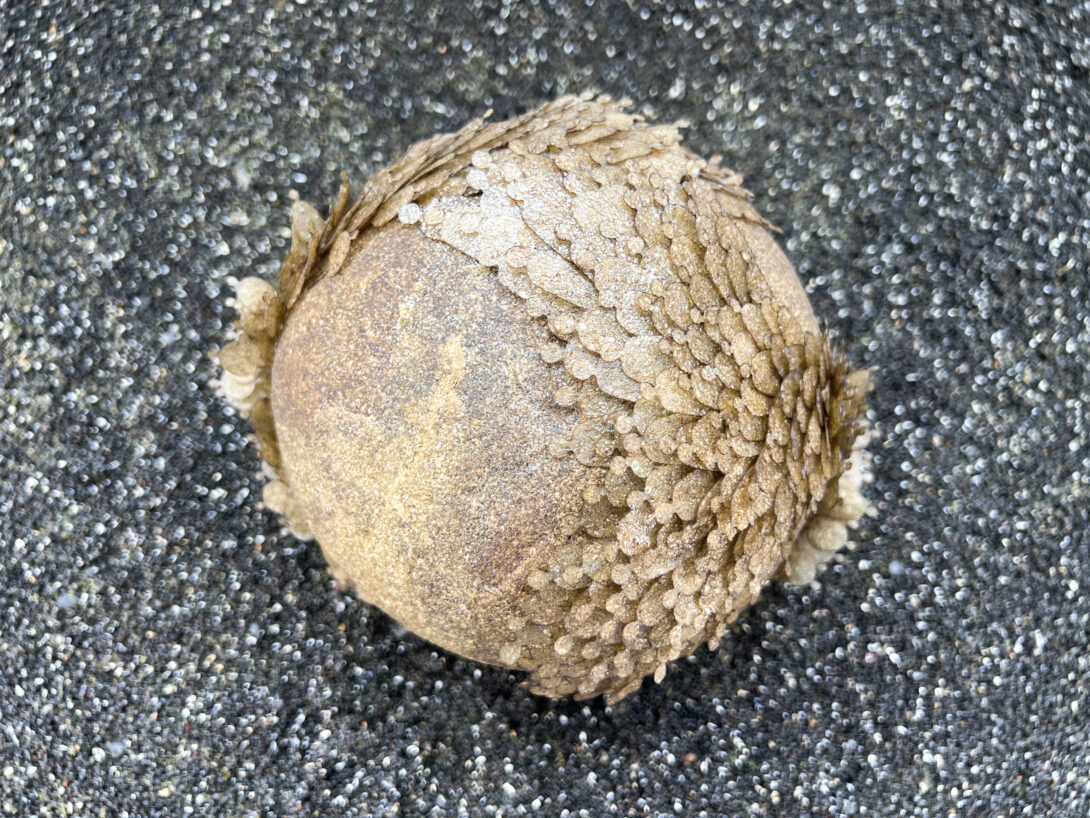About the project
Alberte Bojesen is a Danish textile and material designer and artist. Exploring the intersection of material and human, by focusing on the haptic and sensorial synergies created in this meeting. With a BA in textile design from The Swedish School of Textiles in Borås, she approaches materials through the lens of textures, functionality and form. Her practice is material driven, ensuring to have constant dialogue with the material, but also challenging its boundaries and limits.
With a strong foundation in textile fabrication, Alberte combines traditional techniques and materials with alternative processes and methods, constantly developing her skillsets. Currently Alberte is researching seaweed as a biomaterial, using it in dialogue with traditional casting and paper making methods, parametric design, and new technologies.
Project
SEAWEED DIALOGUES
Seaweed Dialogues is a material-driven research into Icelandic kelp as a material. The objective of is to initiate a sensorial dialogue between human and interactive seaweed vessels, posing the question of what seaweed is and can be.
The aim of this project was to utilise local Icelandic kelp, for the material research the local actors were approached, such as biologists, artists, kelp producers and harvesters, and activated to share their knowledge of the local kelp. This enabeled a much more holistic understanding of the kelp’s ecosystem but also of the local culture and approach towards kelp. In turn the project proposed an alternative use of the material to their traditional and current use of it.
Later in the process local students were invited to try the kelp-material process, to educate the local community of the value of their surroundings and local resources.
About the approach
Working with seaweed as a collaborator has taught me as a designer and creator a lot. It has invited me to not only think within a human-centric framework, but to consider the eco-centric and regenerative one, where we give more than we take. In this process it has become important to my design practice to not merely understand the material on a biological-level, but its role in the ecosystem, history, and tradition, to be able to collaborate with it in a deeper more holistic manner.
